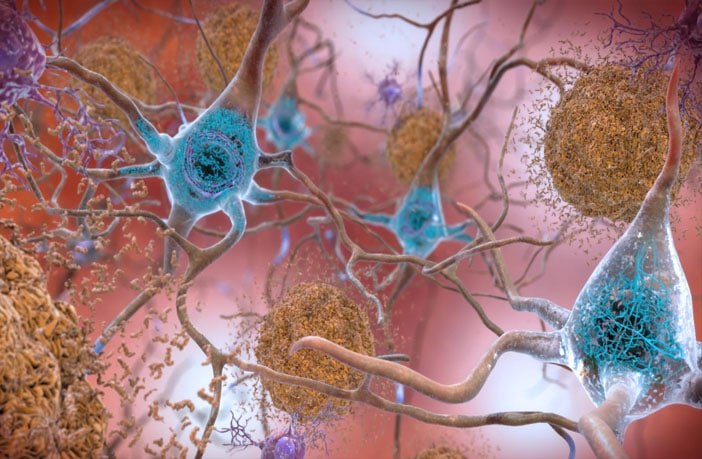A recent large-scale study has reignited discussions about the potential connection between herpes simplex virus type 1 (HSV-1) and Alzheimer’s disease, a neurodegenerative condition affecting millions globally. The study analyzed data from over 340,000 individuals aged 50 and above, revealing that those diagnosed with Alzheimer’s disease had a history of HSV-1 infection at a rate of 0.44%, compared to 0.24% among controls. This translates to an 80% increased relative risk of developing Alzheimer’s in HSV-1 diagnosed individuals .
Understanding HSV-1
HSV-1 is a neurotropic virus primarily known for causing cold sores. The World Health Organization estimates that nearly two-thirds of the global population under 50 carry the virus, often without symptoms. Initially, HSV-1 can manifest as mild fever, muscle aches, or visible sores but can remain dormant in the body’s nervous system. This dormant phase can reactivate due to various triggers, leading to the familiar symptoms of cold sores. However, the reactivation’s implications may extend beyond these symptoms, particularly concerning neurological health.
Study Findings and Implications
The recent study published in BMJ Open examined data from over 340,000 individuals aged 50 and above, revealing that those diagnosed with Alzheimer’s disease had a history of HSV-1 infection at a rate of 0.44%, compared to 0.24% among controls. This translates to an 80% increased relative risk of developing Alzheimer’s in HSV-1 diagnosed individuals. Moreover, another notable finding was that individuals undergoing antiviral treatment for HSV-1 showed a 17% reduced likelihood of Alzheimer’s diagnosis. This statistic underscores the urgency for further investigations into antiviral treatment benefits concerning neurodegenerative diseases .
Study Limitations and Challenges
Despite its significant findings, the study has notable limitations. The use of insurance claim data may not accurately reflect the actual prevalence and severity of HSV-1. Many cold sore episodes go unreported, which could lead to an underestimation of the link between HSV-1 and Alzheimer’s disease. Additionally, the study predominantly captures a small subgroup of individuals with clinically diagnosed herpes episodes, leading to potential selection bias. Researchers argue that a comprehensive understanding of the viral impact on dementia requires more nuanced and broad-reaching studies .The Sun
Broader Context: Viral Infections and Alzheimer’s Disease
Viral infections and their potential contribution to Alzheimer’s disease are not a novel concept. Prior studies have documented the presence of HSV-1 DNA in postmortem brain tissues of Alzheimer’s patients and have demonstrated that HSV-1 can elicit amyloid-beta plaque accumulation, a hallmark feature of Alzheimer’s pathology. However, it is critically important to note that the current study, while suggestive, does not establish causation. Factors such as lifestyle, genetics, and overall health can also heavily influence an individual’s risk of developing Alzheimer’s disease.
What This Means for Individuals with HSV-1
The current findings should not incite panic among individuals with HSV-1. The overwhelming majority of those infected with the virus do not develop Alzheimer’s. While some research indicates a potential risk, Alzheimer’s disease results from a complex interplay of factors including genetics and lifestyle choices.
Encouraging Healthy Lifestyle Practices
While the relationship between HSV-1 and Alzheimer’s disease is intriguing and warrants further study, focusing on proven methods of maintaining brain health remains essential. Experts recommend regular physical activity, nutritional diets, well-managed stress levels, and mental engagement as fundamental practices for supporting cognitive health.
Conclusion
The cumulative research points towards an intriguing connection between HSV-1 and Alzheimer’s, emphasizing the need for ongoing research in this domain. While current findings provide valuable insights into the potential risk factors associated with viral infections in neurodegenerative diseases, the definitive causal mechanisms remain unclear.
Future Directions in Alzheimer’s Research
The ongoing efforts to delineate the role of various viral infections in Alzheimer’s underline a critical need for future research. As the body of evidence grows, researchers can better ascertain how these infections may influence Alzheimer’s pathogenesis. Conducting longitudinal studies to observe HSV-1 prevalence over time, exploring the effectiveness of antiviral treatments in varied populations, and incorporating a diverse group of participants to achieve more representative data are essential steps forward. Enhanced understanding of these relationships could potentially inform public health policies directing the prevention and management of Alzheimer’s disease and related conditions.
Call to Action
In light of these findings, individuals and healthcare professionals should remain vigilant in monitoring new research developments. Anxiety over HSV-1 and Alzheimer’s disease should be approached with a balanced perspective, keeping in mind the larger context of what we currently understand regarding Alzheimer’s risk factors. As discussions around the implications of viral infections continue to unfold, the health community is encouraged to enhance awareness and integrate findings into preventative strategies and treatment protocols.
Further studies are needed to clarify the intricate relationship between viral infections and neurodegenerative diseases. Until then, promoting healthy aging remains paramount for cognitive well-being.

